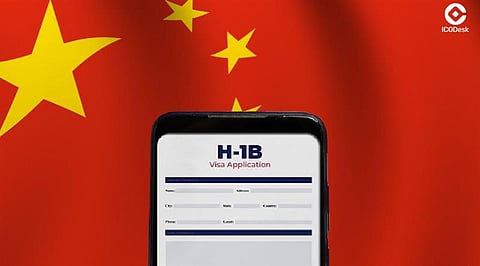

China recently introduced a new form of K visa, which becomes effective from October 1, 2025, designed to attract young international graduate engineers, scientists, and other professionals in the science, technology, engineering, and mathematics (STEM) fields. The programme allows entry, residence, and employment without a local employment opportunity.
The move follows an increase in the H-1B visa program in the US, which adds a $100,000 fee and is scheduled to replace the lottery system with a weighted distribution. Immigration experts observe that the K visa in China offers another route for skilled professionals to access more flexible opportunities.
KPMG states that the K visa is based on the previous Chinese R visa for highly skilled workers, which was introduced in 2013; however, the priority has shifted to attracting youth talent. Applicants must be graduates of reputable universities or those conducting research in STEM fields. All the activities that are allowed do not just end with employment, as they also enable participation in academic, cultural, and entrepreneurial projects.
The H-1B visa in the US remains highly popular among technology companies seeking immigrant labor, but it is increasingly encountering challenges. The increase in fees by the Trump administration raised some eyebrows among the Indian IT professionals who constitute more than 70% of the H-1B beneficiaries. Those opposing the new charges note that the additional expenses may deter applications, especially from first-time candidates.
The H-1B programme features very few jobs, and each job requires an annual salary of $85,000; an employer must sponsor the individual. However, the K visa in China eliminates the need for sponsorship and offers more flexibility in terms of extending the length of residence; however, there are limited opportunities to become a long-term citizen. High expertise indicates that the timing of the Chinese rollout would be enticing to candidates who are discouraged by increasing prices and unpredictability in the US.
Proponents of the K visa also note such benefits as easy access and greater engagement in the Chinese technology ecosystem. Monetary rewards, such as housing allowances and cash bonuses, are already being offered to overseas Chinese talent who have returned to the US.
However, challenges remain. Lack of transparency regarding age and work rules, limitations on family membership, and language barriers might discourage applications. Participation can also be shortened by diplomatic pressures, especially with India, which China claims is interested in Indian professionals.